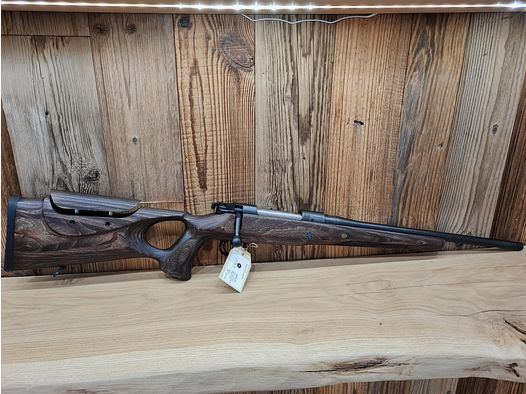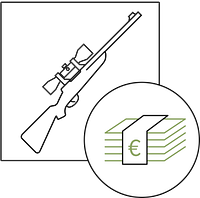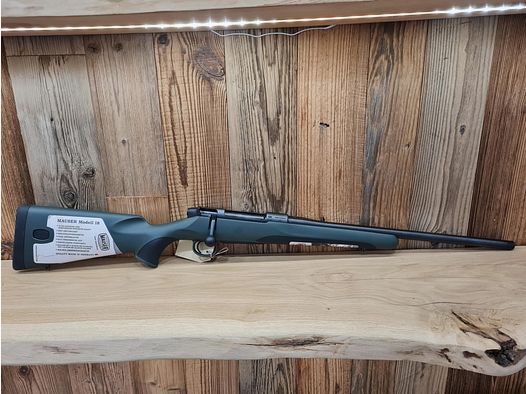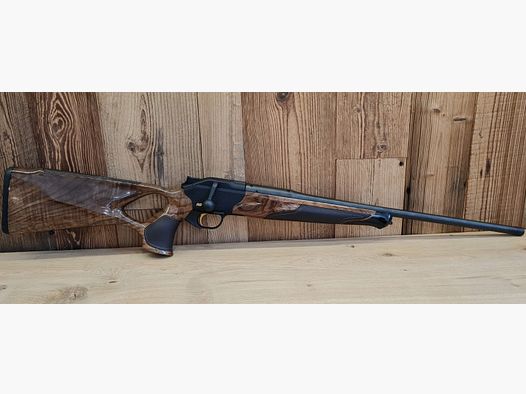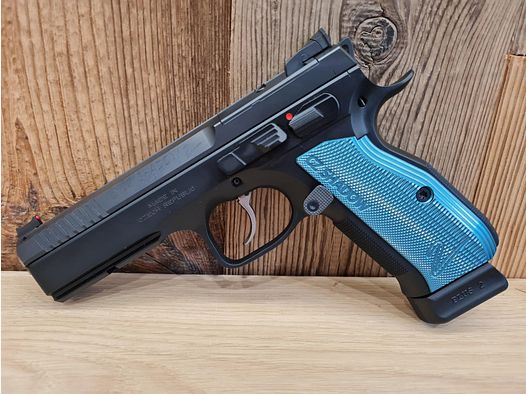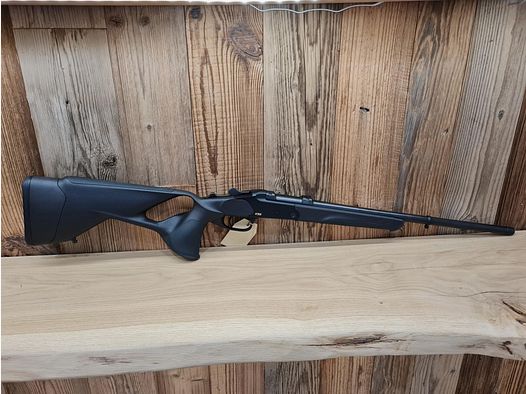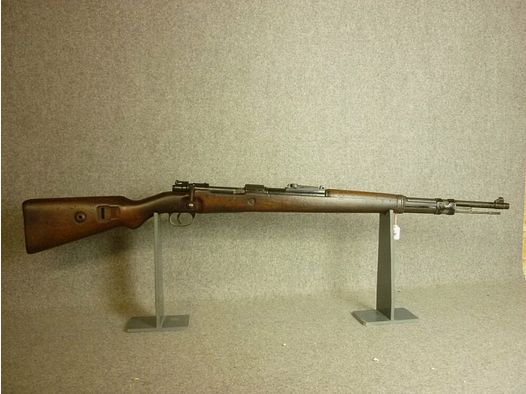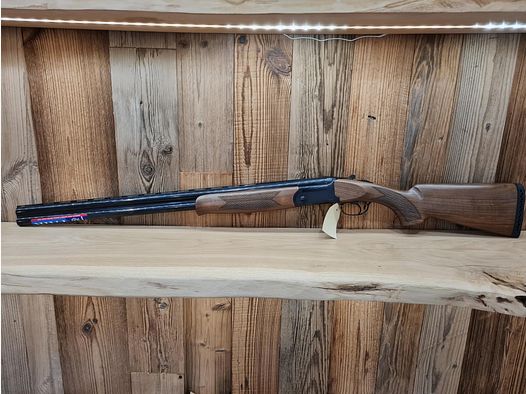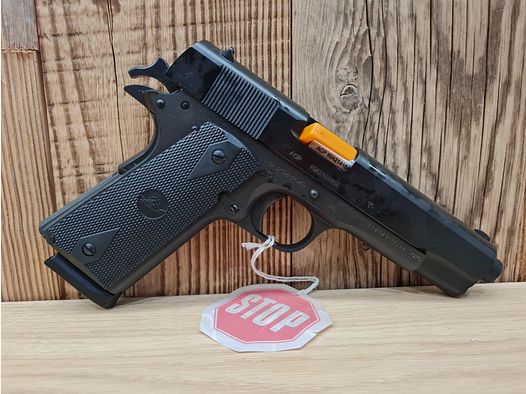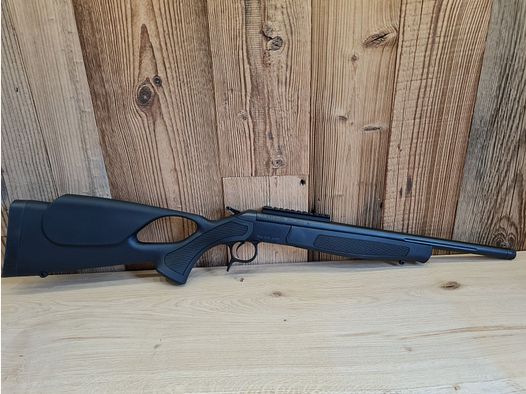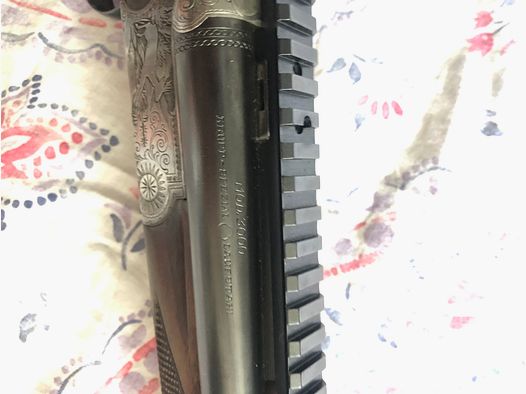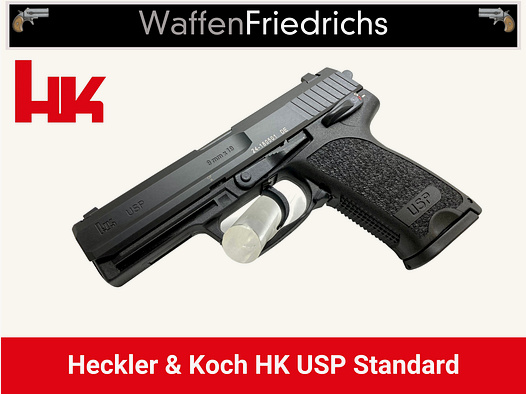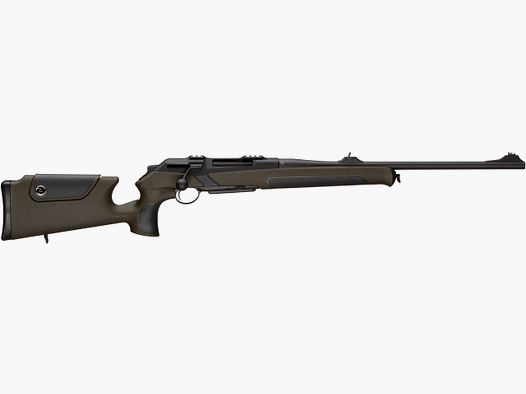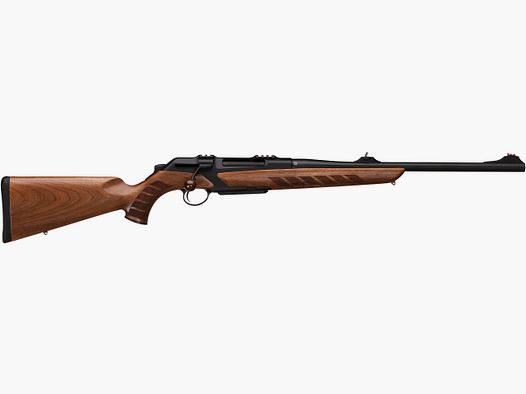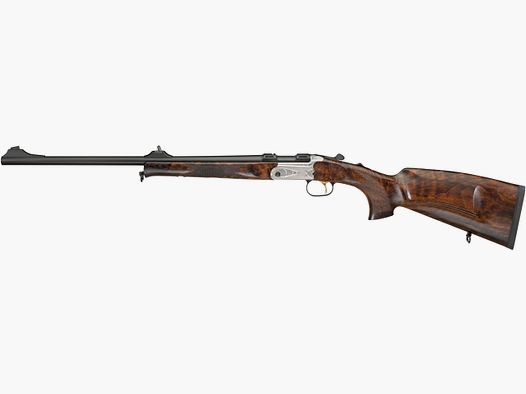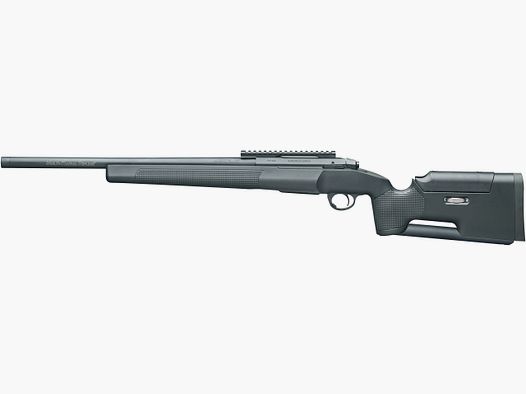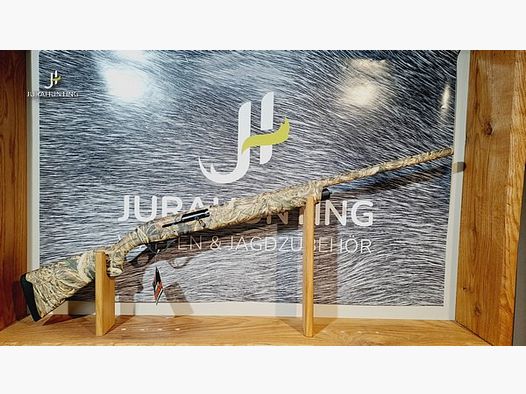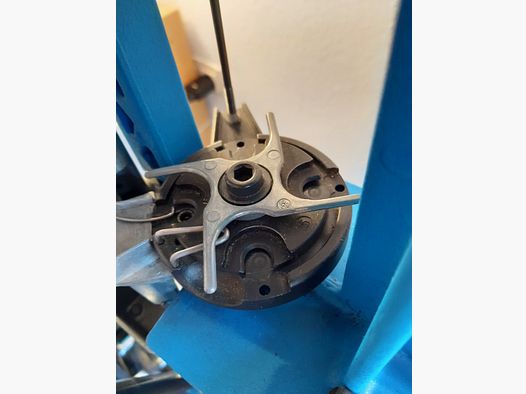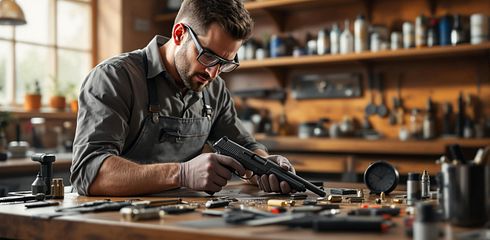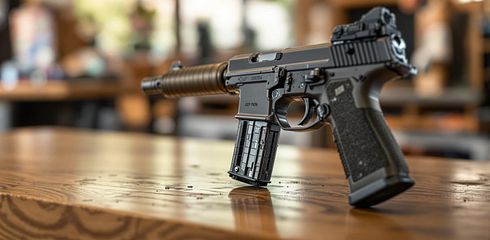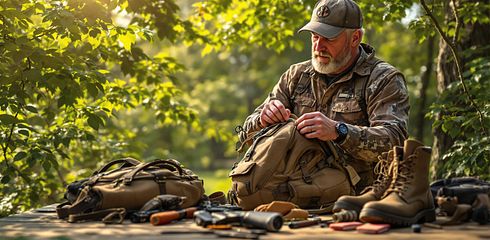A gunsmith requires precise and specialized tools to safely maintain, repair, and customize firearms. Here are the most important tools:
-
Basic equipment:
- Precision screwdrivers and torque screwdrivers
- File set (grit 100–1000)
- Safety glasses, work gloves, and workbench protection blocks
-
Measuring and inspection tools:
- Digital caliper (accuracy 0.01 mm)
- Micrometer (measuring range 0–25 mm)
- Endoscope with LED lighting
-
Special tools:
- Rasps and draw knives for stock work
- Engraving tools and bedding equipment
-
Professional tools for advanced users:
- CNC-assisted systems
- High-quality polishing and bluing sets
Tip: First invest in a high-quality basic set and gradually expand it with specialized tools. Precision and quality of the tools are crucial for safety and efficiency. Use platforms like Gunfinder to compare prices and find the best tools for your needs.
The standard for gunsmiths? The big firearms ...
Basic tools for gunsmiths
The basic tools of a gunsmith are precise and specifically designed to efficiently and safely carry out the most common maintenance and repair tasks.
Screwdrivers and files
A high-quality screwdriver set is essential. This includes:
- Precision screwdrivers: Hardened blades with exactly fitting profiles for various firearm screws. They minimize the risk of damage.
- File set: Fine files with different grits (100 to 1000) for precise metalworking and fitting tasks.
- Torque screwdriver: Essential for accurately setting torque, especially on sensitive components.
Workbench accessories and safety equipment
Safety and stability are crucial when working. Therefore, the following items should not be missing:
- Safety glasses: A shatterproof and impact-resistant pair of glasses according to DIN EN 166 protects the eyes from injuries.
- Workbench protection blocks: Plastic blocks that securely hold firearm parts without damaging them.
- Testing sleeves: Allow for safe function testing of firearms without live ammunition.
- Work gloves: Cut-resistant gloves protect the hands from sharp edges and splinters.
Inspection and finish tools
For quality control and surface finishing, the following tools are essential:
| Tool | Application | Features |
|---|---|---|
| Endoscope | Barrel inspection | With LED lighting, min. 720p |
| Caliper | Precision measurements | Digital, accuracy 0.01 mm |
| Micrometer | Fine measurements | Measuring range 0–25 mm |
| Polishing set | Surface treatment | Various grits available |
The quality of these tools is crucial. Especially with measuring instruments, precision is essential, as even the slightest inaccuracies can have serious consequences.
Tip: Regularly check your tools for wear or damage. Defective tools not only impair work but can also pose a safety risk.
In the next section, we will focus on tools for more complex tasks.
Advanced gunsmith tools
For more complex tasks, specialized tools are required that allow for precise adjustments and decorative embellishments. Two central categories are tools for stock work and equipment for engraving and bedding.
Tools for stock work
Working on the stock requires precise devices to achieve individual adjustments and high-quality results. Here are some of the most important tools:
| Tool | Purpose | Features |
|---|---|---|
| Rasp set | Rough shaping of the stock | Allows for versatile shapes |
| Draw knife | Fine work | Ensures precise details and edges |
| Contour gauge | Profile transfer | Helps with exact adjustments |
| Clamping device | Fixation of the material | Ensures secure hold |
High-quality tools ensure consistent and reliable results.
Engraving and bedding equipment
For decorative engravings and technical optimizations of the stock, the right equipment is crucial:
Engraving tools:
- Pneumatic devices with interchangeable tips for fine details
- Magnifying lamp for better visibility and a fixture for stability
Bedding tools:
- Precise mixing systems for bedding compounds
- Releasing agents and special cleaners for surface preparation
- Fine polishing sets for a smooth finish
In bedding work, even application is crucial to avoid compromising fit.
In the next section, we will show you how to best integrate these tools into your workshop.
sbb-itb-1cfd233
Guide to tool selection
The choice of suitable tools depends on the type of firearms and their specific requirements. Below, you will learn which materials and features are crucial for the best results.
Quality standards for tools
| Material | Properties | Recommended application area |
|---|---|---|
| Tool steel | High wear resistance | For basic maintenance tasks |
| Carbide | Extreme hardness and durability | For intensive machining |
| High-alloy steel | Corrosion resistant | For precision work |
Choose your tools according to the requirements of the respective firearm. For precision weapons, tools with tighter tolerances are important, while hunting firearms require more robust variants.
Important features of high-quality tools:
- Precise torque wrenches
- Wear-resistant screwdrivers
- Hardened files and rasps
- Ergonomic handles for comfortable use
Find tools on Gunfinder

Gunfinder makes searching for quality tools easy and efficient. The platform offers the following advantages:
Useful search options:
- Filter by categories
- Price comparisons
- Detailed technical specifications
Shopping aids:
- Wishlist for favorites
- Price alerts for deals
- Comparison of technical data
Especially for specialized tools like precise torque wrenches or high-quality engraving sets, a detailed comparison is worthwhile. High-quality tools pay off through precision and durability.
Basic vs. professional tools
Basic tools are suitable for maintenance and standard repairs, while professional tools enable more complex and precise work. The following overview shows the differences between these two categories.
Basic tools:
- Standard files and polishing sets
- Analog measuring instruments
- Basic safety equipment
Professional tools:
- Digital measuring devices with an accuracy of 0.01 mm
- Specialized tools for stock work
- CNC-assisted systems
- High-quality engraving tools
Comparison table: Basic and professional tools
| Category | Basic tools | Professional tools |
|---|---|---|
| Screwdrivers | Standard set (€15–30) | Precision set with torque limitation (€150–300) |
| Measuring tools | Analog caliper (€30–50) | Digital measuring systems (€200–500) |
| Files | Basic set (€40–80) | Special set with diamond files (€200–400) |
| Polishing tools | Hand polishing sets (€50–100) | Electric polishing systems (€300–600) |
| Stock work | Basic rasps (€60–120) | CNC-assisted tools (from €1,000) |
| Safety | Basic equipment (€100–200) | Professional protective equipment (€300–600) |
Important differences
- Precision: Professional tools offer accuracy in the hundredth millimeter range.
- Durability: They are made from higher quality materials and are more robustly constructed.
- Automation: Digital and computer-assisted systems make work easier.
- Specialization: Designed for specific and demanding applications.
For regular specialized tasks, professional tools are a worthwhile investment. However, if you only perform occasional maintenance work, a good basic set will serve you well.
Building your gunsmith tool kit
Here you will learn how to assemble a solid tool assortment step by step.
Basic equipment for beginners
Start with the basic tools that have already been introduced. This foundation forms the basis of your kit. As you gain experience, you can expand it purposefully.
Expansion for advanced users
As your expertise grows, you can supplement your assortment with specialized tools:
-
Precision tools
Digital measuring instruments with high accuracy (e.g., down to 0.01 mm) are a worthwhile investment. They help you work precisely. -
Specialized equipment
Depending on the application area, you can add specific tools:- Stock work: Professional rasp and sanding sets
- Metalworking: High-quality milling and drilling tools
- Surface treatment: Polishing and bluing systems for a perfect finish
Tips for procurement
Platforms like Gunfinder can make your search easier. Here you can specifically search for tools, save favorites, and get notified about new offers.
What to look for in quality
Before purchasing a new tool, check whether it meets your requirements. Important points include:
- High precision in measuring tools
- Ergonomic design for comfortable use
- Robust, durable materials
- Availability of spare parts
Build your assortment gradually. Start with a high-quality basic set and supplement it over time as you gain more experience. This approach not only saves money but also ensures that you select the right tools for your needs.
FAQs
What should you pay attention to when selecting gunsmith tools?
When selecting gunsmith tools, the focus is primarily on quality, precision, and durability. High-quality materials such as hardened steel or robust alloys ensure that the tools remain reliable even with intensive use.
Also, ensure that the tools are ergonomically designed to allow for comfortable and safe working. Precisely manufactured tools are particularly important for performing fine work on firearms without causing damage. It is better to invest in a few high-quality tools that are versatile and will serve you well in the long run.
How can I find out if my tools are suitable for working on my firearms?
To ensure that your tools are suitable for working on your firearms, you should first know the specific requirements of the task at hand. Different tasks, such as cleaning, adjusting, or repairing, often require specialized tools that can be used precisely and safely.
Make sure to use high-quality tools designed for gunsmithing needs. This includes, for example, torque wrenches, screwdriver sets with interchangeable tips, clamping devices, or cleaning kits. Carefully read the operating manuals of your firearms to ensure that you are using the right tools and techniques.
If you are unsure which tools you need, you can consult professionals or platforms like Gunfinder, which can help you not only find equipment but also offer a wide selection of accessories and tools.
How can I meaningfully expand my tool assortment as a gunsmith?
To efficiently expand your tool assortment, it is important to invest specifically in high-quality and versatile tools. Consider which tasks you perform most frequently and prioritize tools that make these tasks easier or more precise.
A good way to find suitable tools and accessories is to use specialized platforms like Gunfinder. There, you can not only discover new and used items but also specifically search for tools that meet your requirements. This saves you time and helps you find exactly what you need to optimally equip your workshop.



